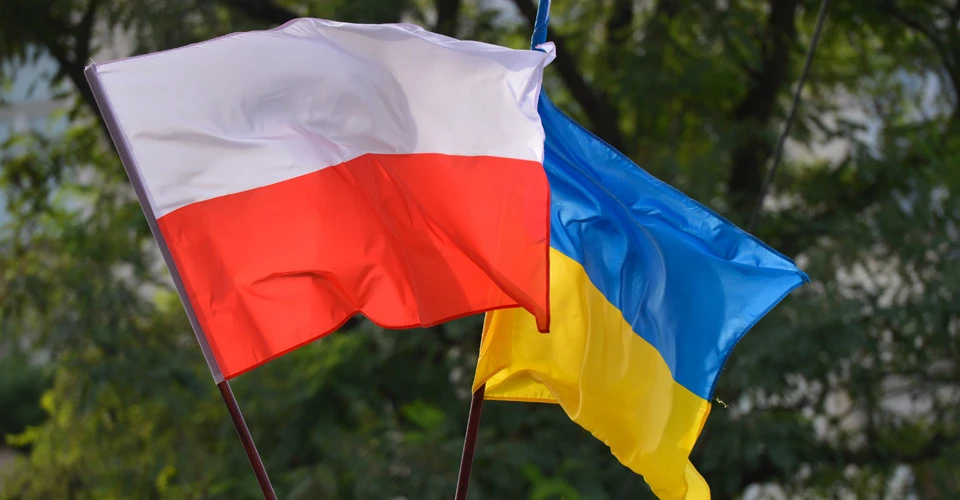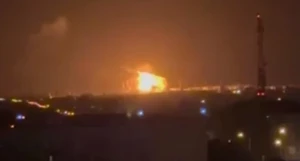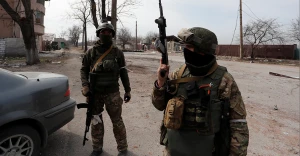
Ukraine’s weakening may be disaster for Poland – political scientist Korejba
Polish political scientist Jakub Korejba believes that the most important security issue for Poland is the preservation of Ukraine's political stability and territorial integrity
He expressed this opinion on Espreso TV.
"The fact that the Kremlin propaganda is promoting the narrative of Poland's seizure of Ukrainian territories is even good news. After all, this proves once again that Russia has not been able to come up with anything new to set Poland and Ukraine at odds. In Poland, the government and society are well aware that the border agreement with Ukraine is one of the greatest achievements of the last 30 years. I would like to emphasize that the borders with Ukraine are inviolable for us," Korejba explained.
He emphasized that political stability and territorial integrity of Ukraine is a matter of survival for Poland.
"For Poland, from any point of view, Ukraine’s weakening would be suicide. This applies to the political, economic and strategic components. It is important for the Poles that Ukraine has large territories and is as politically powerful as possible. It is important to understand the main thing, and this is understood in Poland, that dividing Ukraine with Russia means signing a death sentence. This has happened several times in our history. If Ukraine does not exist, Poland will face the same fate in a few years. This is an axiom of the geopolitics of our region," he added.
How the Wagner soldiers ended up in Belarus
After the mutiny of Wagner PMC leader Yevgeny Prigozhin in late June, the Kremlin announced the relocation of Wagner mercenaries to Belarus.
On June 27, self-proclaimed President of Belarus Alexander Lukashenko confirmed the arrival of Yevgeny Prigozhin in the country. According to him, Wagner mercenaries who arrived with him will not guard the Russian tactical nuclear weapons deployed there. However, Lukashenko emphasized that he expects the mercenaries to help in the defense of Belarus, without specifying the potential source of the country's perceived threat.
On June 29, a satellite recorded the construction of a tent camp near Asipovichy in the Mogilev region of Belarus, and on July 3, Russian media published a photo of an alleged Wagner camp.
On July 11, the Belarusian Ministry of Defense stated that the Wagner mercenaries would train the Belarusian army.
On July 14, media reported that training sessions with units of the territorial troops were taking place near Asipovichy (Belarus), where Wagner PMC fighters were acting as instructors in some military disciplines.
On the morning of July 15, a large convoy of cars and trucks with license plates of the so-called DPR and LPR was spotted in Belarus. Ukraine’s State Border Guard Service confirmed that those were mercenaries of the Wagner PMC.
On Sunday, July 16, the Belarusian Hajun monitoring group reported that two flags - of Russia and the Wagner PMC - had been installed at the checkpoint on the border between Belarus and Russia.
Wagner Group announced that on July 30, their main base in the Russian Federation, located in the village of Molkino in Krasnodar Krai, would be closed.
On July 19, a sixth convoy with Wagner PMC fighters arrived in Belarus.
On July 19, Wagner PMC financier Yevgeny Prigozhin addressed Wagner fighters in Belarus, calling the situation at the front a "disgrace" and urging mercenaries to "wait for the moment to show their full potential."
On July 20, it was reported that another convoy with Wagner fighters arrived in Belarus, which became the ninth since Wagner moved to Belarus, Belarusian Hajun monitoring group writes.
As of the morning of July 20, Wagner mercenaries continue to arrive in Belarus, but do not pose a threat to Ukraine.
Later, on July 23, self-appointed President of Belarus Alexander Lukashenko announced the desire of the mercenaries from the Russian Wagner PMC to "go on an excursion" to Poland. The same day, it was reported that the tenth column of Wagner's mercenaries, which included at least ten pieces of equipment, had arrived in Belarus.
The ISW stated that there is no evidence that Wagner's mercenaries in Belarus have the heavy weapons necessary for a serious offensive against Ukraine or Poland.
On July 25, the 11th column of Wagner's mercenaries arrived in Belarus, this time with armored vehicles. The convoy included at least 29 vehicles. It was also revealed who led them in Belarus.
On July 27, the National Resistance Center reported that Wagner PMC units were looking for people in Belarus who were ready to fight against Lithuania and Poland. Also the same day Belarusian Hajun monitoring group reported that the twelfth column of Wagner's PMC, which included at least 50 pieces of equipment, had arrived in Belarus.
On July 28, 13th convoy of mercenaries with at least 80 vehicles arrived in Belarus.
On July 29, Polish Prime Minister Mateusz Morawiecki announced that more than 100 Wagner fighters had gone to the Suwalki corridor.
On July 31, the Wagner PMC had suspended the work of its regional recruitment centers "indefinitely." And Prigozhin revoked the vacations of employees and ordered them to arrive in Belarus by August 5.
- News














































